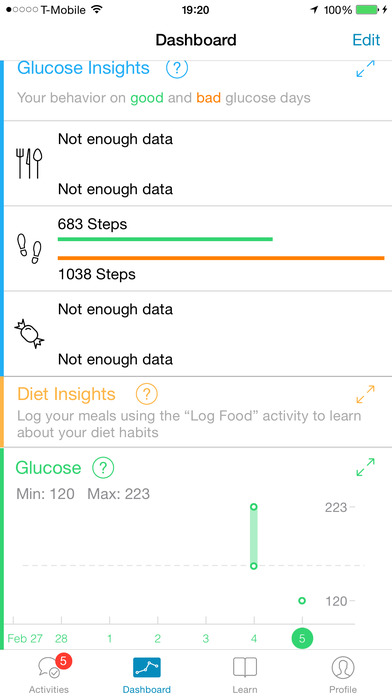 Dr. Dennis Ausiello, director of the Center for Assessment Technology and Continuous Health (CATCH) at Massachusetts General Hospital, says the smartphone is “the greatest medical device ever made”. As part of a talk at the Xconomy Forum in Boston today, Ausiello spoke about some lessons learned from GlucoSuccess, the Apple ResearchKit project launched by CATCH.
Dr. Dennis Ausiello, director of the Center for Assessment Technology and Continuous Health (CATCH) at Massachusetts General Hospital, says the smartphone is “the greatest medical device ever made”. As part of a talk at the Xconomy Forum in Boston today, Ausiello spoke about some lessons learned from GlucoSuccess, the Apple ResearchKit project launched by CATCH.
“The thing that we learned was telling patients things they already know is not very helpful,” he said. “The average duration of Fitbit use is 6-8 weeks and then it goes from 90 percent use to 10 percent use. And if you look at the reason for that it’s because, you know, I kinda knew when I walked 10,000 steps or when I only walked 10 steps. And I keep getting that information over and over again.”
Conversely, GlucoSuccess aims to help patients learn how their behaviors affect their health. Participants track activity duration and intensity, diet information, blood glucose measurements, body weight, and waist size, as well as glucose readings and diet information. Using this data, GlucoSuccess has been able to provide users with insights into how their fitness and nutrition data relate to finger-stick blood glucose values.
“When you begin to integrate databases like we did with our diabetes app you begin to give patients information, and there was a ‘Gee-whiz’ approach,” Ausiello explained. “They didn’t quite understand what the relationship between their blood sugar and exercise was. But we could now show in 24 hours, just taking 300 people — that doesn’t seem like a lot, but the largest study ever conducted on exercise and Type 2 diabetes had 75 people and it took two years to run. This is two months, 300 people, we could have taken 3,000 — and we were able to tell them that for every thousand steps they took yesterday, their fasting blood sugar fell almost 2 milligrams per deciliter today. They didn’t know that.”
And not only did the app tell patients something they didn’t know, but that knowledge had a positive effect on behavior.
“The same group that was told that now walks 10,000 steps over the next five or six days, and their blood sugar fell five times what it had fallen before,” he said.
Ausiello thinks these findings can be a model for all kinds of chronic conditions where behavior plays a large role. If patients can be shown exactly how their behavior impacts their condition, it will make a dent in their behavior change — at least that’s what these preliminary findings show.
“Behavior accounts for 60 percent of most chronic illnesses,” Ausiello said. “Diabetes and obesity of course are the poster children for this, but asthma, cardiovascular disease, I can give you a whole list of diseases where behavioral assessment and modification become incredibly important.”

















